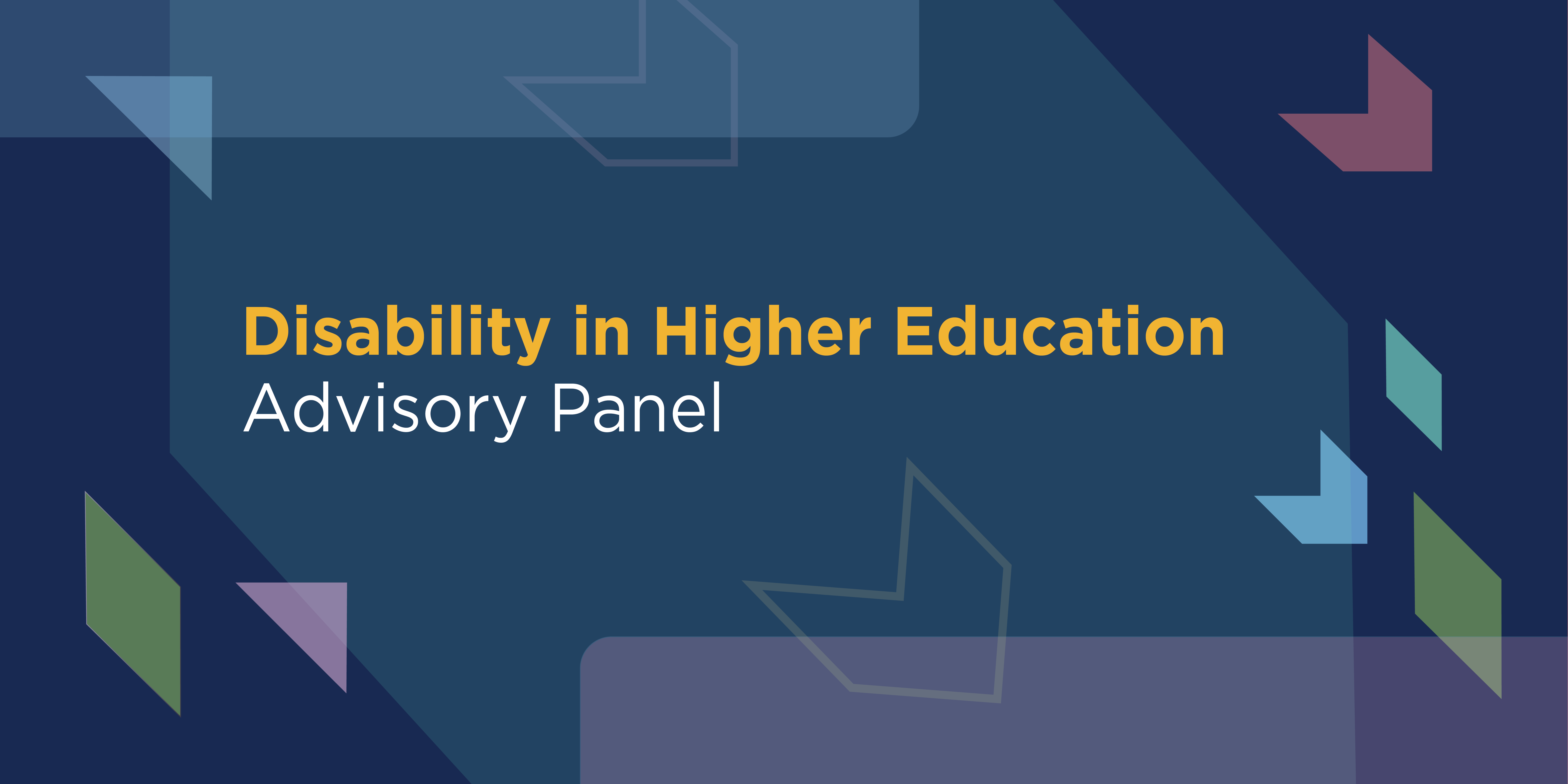Lucy Merritt of the Thomas Pocklington Trust reflects on her membership of the Disability in Higher Education Advisory Panel.

The OfS established its new Disability in Higher Education Advisory Panel in April 2024. The panel is a committee of the OfS board and is chaired by John Blake, Director for Fair Access and Participation. Suzanne Carrie, Head of Student Equality and Welfare at the OfS, is deputy chair.
When the opportunity came to apply to join the panel I jumped at the chance. It’s so important that the OfS, as the higher education regulator in England, should understand the experiences of disabled students and take action for change.
I work at Thomas Pocklington Trust (TPT), a charity dedicated to improving the lives of blind or partially sighted people. The Education team at TPT supports many blind or partially sighted students who need advice, guidance and support to access higher education. In my work as Education Policy Manager, I seek to understand the experience of these students and work with policy decision makers towards removing barriers to education.
We hear regularly from blind or partially sighted students about the barriers they face at university and these are wide-ranging. Students tell us regularly of challenges in getting reasonable adjustments implemented, difficulties accessing support via Disabled Students’ Allowances, and inaccessible university systems, software and learning materials, as well as delays in securing necessary support. All of this highlights to us at TPT that the higher education sector has some way to go.
I think it's fair to say that higher education for blind and partially sighted people in the UK is not where it should be.Blind or partially sighted student
The panel has now met twice. The panel’s discussions have been positive, with good engagement from the OfS, and the great work of the Disabled Student Commission and the Disabled Student Commitment has definitely helped the panel come to a quick shared understanding of the issues we are collectively working to resolve.
The panel has agreed a couple of aims for its first year. The first is to understand the metrics that exist to describe the experiences of disabled students at university and make recommendations regarding any data gaps.
Measuring the disabled student experience with metrics is challenging! At TPT we hear from blind and partially sighted students who have had to engage with lengthy appeal processes because of institutional failures to make adjustments, go through complaints procedures to get such adjustments implemented, or repeat modules because of a lack of support, and from students who have had to transfer to another university to find support. In the worst cases some students have had to drop out of university all together. Many of these students succeed in university despite a hugely challenging experience, but the experience we hear about isn’t routinely measured anywhere.
While the higher education sector works with a lot of data, when I look at it through the lens of a specific disability I see little meaningful data out there. Disabled students aren’t a homogenous group, but the way some of the data available is presented through that data – in some cases just disabled or not – asserts that they are. Where subcategories of disability are used, these often group disabilities together: by example, vision impairment is often in a broad category of ‘sensory, medical or physical impairment’ which covers a huge range of disabilities with wide-ranging needs.
The second area the panel will be looking at later is how the OfS might use its regulatory powers to secure improvements in the disabled student experience. We’ve started looking at the current OfS regulatory levers and how disability features in these.
There is a wealth of experience and expertise represented on the panel, including disabled student representatives and independent experts from within the higher education sector. I have been heartened by the commitment of each panel member to keep the disabled student at the centre of our work.
There is an urgency for change, and I am hopeful that the good work that that the panel has started will inform some positive action.
Thomas Pocklington Trust strives for equality of blind and partially sighted people in every aspect of society. We are a charitable organisation with a dedicated staff – over half of us are blind or partially sighted – and over 200 volunteers who have lived experience of sight loss. Our mission is to support blind and partially sighted people to bring about equity and inclusion in every aspect of society.

Comments
Report this comment
Are you sure you wish to report this comment?